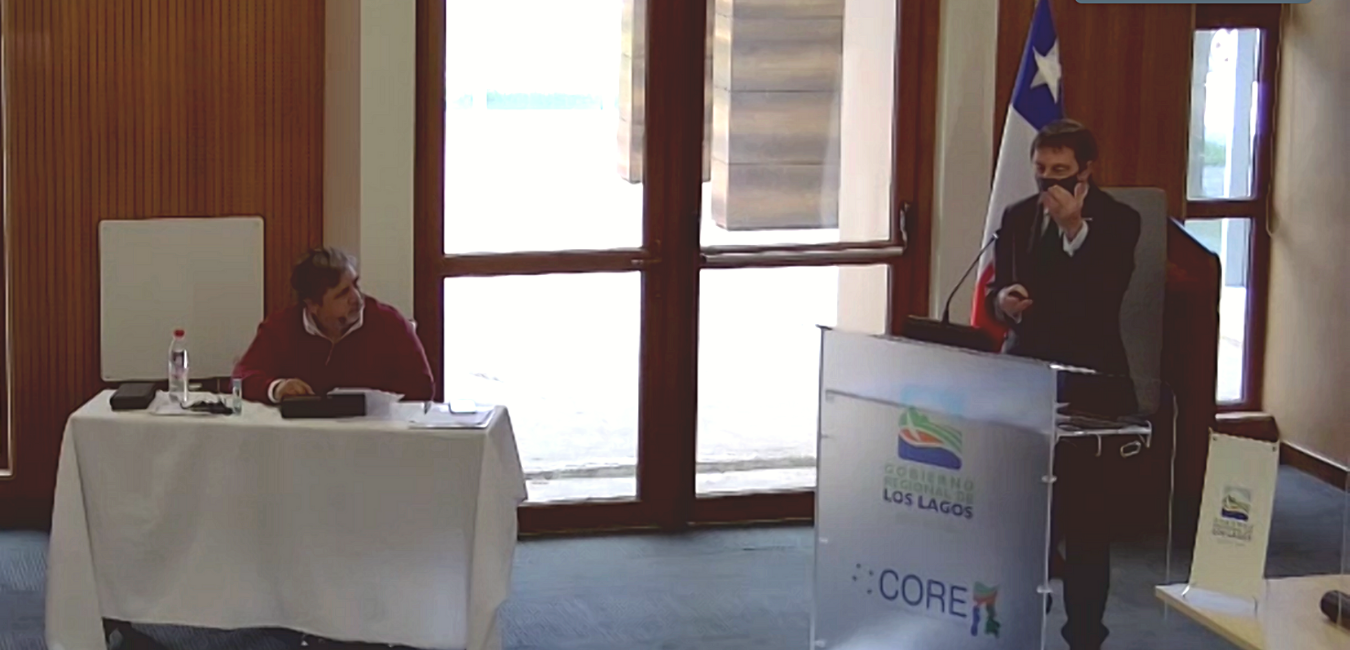Paul Gleeson, Ireland´s ambassador, presented innovative initiatives for the application of the bioeconomy in agriculture and the dairy industry in Puerto Montt
Regarding the similarities of the agricultural and dairy industry between our country and Ireland, its ambassador in Chile, Paul Gleeson, spoke about the path traveled in the application of the bioeconomy, in a circular economy conference held in the Los Lagos region.
Ireland is the largest exporter of beef in Europe and the fifth largest in the world, with a great reputation for its grass-fed cattle. 62% of the land is used for agriculture, with a total of 140 thousand fields; and ranks among the top of global food safety and food security.
With this information, the ambassador argued that sustainability in production processes is possible, but that a major public-private agreement is required to push this change of perspective, necessary to achieve the carbon neutrality goals by 2050.
Regarding Chile, he stressed that “we have great similarities in terms of the path that Ireland has traveled in the 1990s” and was emphatic in pointing out that “it is not about destroying the existing processes to start from scratch, but rather it is about seeking bioeconomy solutions in the different stages of the production processes”.
He explained that “when we talk about the bioeconomy, we talk about developing sustainable carbon cycles, not only drastically reducing fossil carbon uses, but also increasing carbon removal, recycling and reuse. Not just using the land to make food and disposing of waste material, but reusing the waste for other purposes, and even reducing it from the start.”
In this line, he highlighted two initiatives carried out in his country. The first is the collaboration between Biorbic, a world leading research center and Carbery, one of the largest dairy processors, “who together are capturing carbon from the soil to reduce the use of fertilizers, testing different types of food that change the digestion of animals and reduce emissions. They use renewable energy and study biodiversity on farms to better understand global emissions. We estimate that with these approaches, emissions from these animals and their manure can be cut in half by 2025, and total emissions from farms by more than 80%.”
The second refers to the one carried out by Glanbia, an Irish nutrition group that operates in more than 30 countries through its AgriChemWey program “which aims to establish an industrial-scale biorefinery – the first of its kind – using dairy waste to add value to high-end biobased products. Like oil, biological materials can be refined with significant results for the environment and for the world that we are leaving to our children and grandchildren.”
Irish presence in Chile
Gleeson said that agriculture is one of the areas where greater collaboration can be achieved between Chile and Ireland, due to the importance of this productive activity for both countries.
In this context, he highlighted the presence of Irish companies in our country, such as “the significant investment in the production and export of fruit, with the company Total Produce, which is the majority shareholder of Dole and has a 50% stake in the exporter El Parque”.
He also pointed out that “Irish agritech companies are doing well in Chile” and Samco is one of them, “which has had great success in Osorno with its maize planting machinery, which applies herbicides that allow farmers to obtain higher product yield and better quality per ha”. The other is Ireland Genetics “which works successfully on the improvement of bovine genetics and offers comprehensive consulting services around the best profitability of cattle and dairy products; as well as in matters of animal welfare, sustainability and clean agriculture”.

